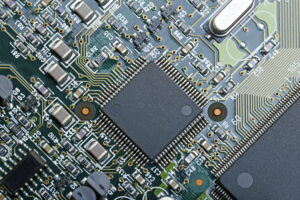Table of Contents
ToggleCareer Opportunities in the Semiconductor Industry
The semiconductor industry has become one of the most critical sectors in the modern global economy. Fueling innovation in electronics, the demand for skilled professionals is soaring, and the opportunities are vast. From engineering and design to testing and quality control, a career in this industry promises not only a stable and high-paying job but also the chance to shape the future of technology. This article delves into the array of career opportunities available in the semiconductor industry, covering essential roles, required skills, and the emerging trends that are transforming this dynamic field.
Why Choose a Career in the Semiconductor Industry?
The semiconductor industry is the backbone of technology as we know it. Semiconductors are essential components in a wide range of devices – from smartphones to computers to vehicles – enabling the performance of critical functions. Given the industry’s rapid growth and its central role in global technological advancement, the demand for qualified professionals is higher than ever. Whether you’re an engineer, scientist, or technician, the career opportunities in the semiconductor industry are plentiful and diverse, offering not only job stability but also room for growth and innovation.

Introduction to Key Roles in the Semiconductor Industry
Career paths in the semiconductor industry are highly specialized and require technical expertise. Below, we’ll break down some of the major roles, responsibilities, and skills needed to excel.
1. Semiconductor Process Engineer
Process engineers in the semiconductor industry develop and optimize the complex manufacturing processes used to produce semiconductor devices. They play a vital role in ensuring that these processes are as efficient and cost-effective as possible.
Key Responsibilities:
- Designing and optimizing manufacturing processes.
- Ensuring quality control and yield in production.
- Collaborating with R&D teams for process improvement.
Skills Needed:
- Knowledge in materials science, chemistry, and physics.
- Proficiency in data analysis and problem-solving.
- Familiarity with manufacturing and testing equipment.
2. IC Design Engineer
An IC Design Engineer is responsible for designing integrated circuits (ICs) that perform specific functions within electronic devices. This role is essential in the development of new technologies, and it requires a deep understanding of circuit theory and design tools.
Key Responsibilities:
- Translating system requirements into working chip designs.
- Using EDA (Electronic Design Automation) tools for simulation and testing.
- Ensuring that ICs meet technical and performance requirements.
Skills Needed:
- Proficiency in hardware description languages (HDLs) like Verilog and VHDL.
- Knowledge of EDA tools such as Cadence, Synopsys, and Mentor Graphics.
- Strong analytical skills and an understanding of circuit design principles.
3. Product Engineer
Product Engineers are responsible for managing the lifecycle of semiconductor products. They ensure that products meet quality and reliability standards, addressing any issues that arise in the manufacturing process.
Key Responsibilities:
- Monitoring product performance from design to production.
- Coordinating with various departments to resolve issues.
- Ensuring product compliance with quality and reliability standards.
Skills Needed:
- Strong understanding of semiconductor physics and product lifecycle management.
- Experience with troubleshooting and quality control.
- Analytical skills for performance monitoring.
4. Equipment Engineer
Equipment Engineers maintain and optimize the machines used in semiconductor manufacturing. Their work is essential in maximizing production efficiency and minimizing downtime.
Key Responsibilities:
- Installing, repairing, and maintaining manufacturing equipment.
- Developing preventive maintenance schedules.
- Troubleshooting mechanical and technical issues.
Skills Needed:
- Proficiency in handling complex machinery.
- Knowledge of equipment maintenance and troubleshooting.
- Ability to work in high-stress environments and solve problems quickly.
5. Applications Engineer
Applications Engineers help clients optimize the use of semiconductor products within their systems. They provide technical support, ensuring that customers get the most out of the products they purchase.
Key Responsibilities:
- Providing technical guidance and support to customers.
- Troubleshooting issues related to product functionality.
- Working with sales teams to understand client requirements.
Skills Needed:
- In-depth knowledge of semiconductor products and their applications.
- Strong customer service and communication skills.
- Ability to solve technical problems efficiently.
6. Test Engineer
Test Engineers are responsible for developing and conducting tests to ensure semiconductor products meet quality standards. This role is essential in identifying defects and ensuring functionality.
Key Responsibilities:
- Designing and implementing testing protocols.
- Analyzing test data and identifying issues.
- Working with design teams to improve product quality.
Skills Needed:
- Experience with automated testing and testing software.
- Strong analytical and troubleshooting skills.
- Knowledge of failure analysis and quality assurance.
Educational Requirements for Careers in the Semiconductor Industry
Most roles in the semiconductor industry require at least a bachelor’s degree in engineering, physics, computer science, or a related field. However, some specialized positions may demand advanced degrees or certifications in areas such as VLSI design, embedded systems, or material science.
Additional Skills
- Programming Languages: Knowledge of languages like Python and C++ can be advantageous, especially for roles in design and testing.
- Soft Skills: Teamwork, communication, and adaptability are crucial for collaborating across various departments.
- Technical Skills: Familiarity with industry-standard tools and processes is often required for most positions.
Emerging Trends Impacting Careers in the Semiconductor Industry
1. AI and Machine Learning Integration
Artificial Intelligence (AI) and Machine Learning (ML) are shaping the semiconductor industry by enabling advanced chip designs that cater to high-performance computing needs. As a result, the demand for AI-focused IC designers and software engineers is growing.
2. Growth of IoT and 5G
With the rapid adoption of 5G networks and Internet of Things (IoT) devices, semiconductors need to be more powerful and efficient. Engineers specializing in RF design and embedded systems are in high demand to address the unique challenges posed by these technologies.
3. Sustainability Initiatives
The semiconductor industry is increasingly focused on sustainability. This shift has opened new roles in green engineering and sustainable manufacturing, as companies aim to reduce waste and energy consumption.
How to Build a Successful Career in the Semiconductor Industry
Building a career in the semiconductor industry involves more than just obtaining the right degree. Professionals in this field must stay updated on new technologies and industry trends, network with others in the industry, and continually build upon their technical skills. Here are some strategies to help:
- Stay Educated: Regularly update your knowledge of new technologies such as ASIC design, quantum computing, and nanoelectronics.
- Develop Technical Skills: Gain hands-on experience with tools and technologies specific to the semiconductor industry.
- Network Actively: Attend conferences, seminars, and other industry events to connect with professionals and learn from industry leaders.
Future of Career Opportunities in the Semiconductor Industry
The semiconductor industry is set to continue expanding as the world becomes increasingly digital. The growth of AI, IoT, 5G, and renewable energy will drive demand for skilled professionals across various roles. Companies will need IC designers, process engineers, and equipment engineers to meet production demands, making this an opportune time to enter the field.
The industry’s emphasis on innovation and sustainability will also create unique roles focused on reducing environmental impact and increasing energy efficiency. Professionals who can adapt to these changes and focus on continuous learning will find rewarding and long-lasting careers in the semiconductor industry.
Conclusion
In today’s tech-driven world, the career opportunities in the semiconductor industry are abundant and diverse. The sector offers professionals a chance to work on the cutting edge of technology, shaping the future of electronic devices and digital advancements. With roles ranging from design and engineering to testing and applications support, this industry provides a wide array of career paths for those with the right skills and dedication. As demand for semiconductors continues to grow, a career in this field promises both stability and the potential for innovation.
With the right qualifications, adaptability, and a commitment to ongoing learning, you can build a successful and fulfilling career in the semiconductor industry.
To know more about the semiconductor industry visit Industry Net. If you liked this article do follow our site TIMES DIGEST for more such exclusive contents.












